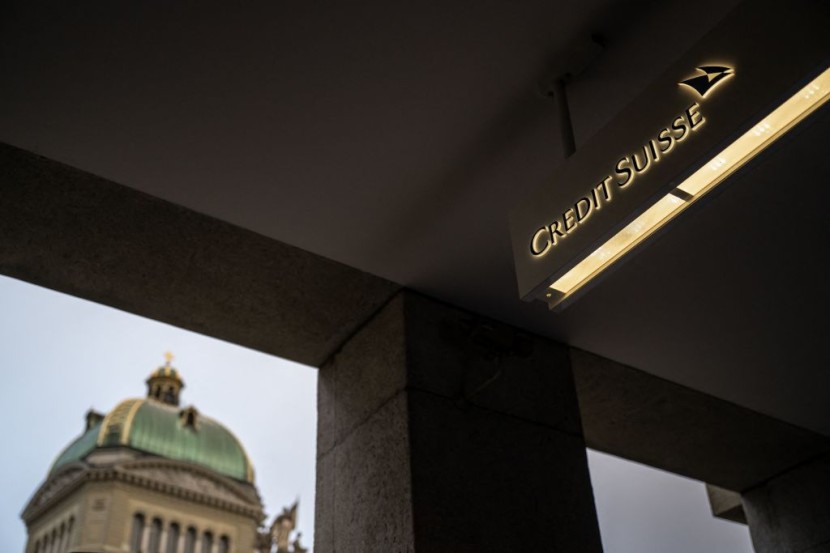
The largest bank in Switzerland, UBS, has agreed to purchase Credit Suisse for 3 billion Swiss francs ($3.24 billion), according to bank executives, to stem a growing crisis of trust in global banking.
The arrangement, revealed late on Sunday, comprises 100 billion Swiss francs ($108 billion) in liquidity support from the Swiss central bank for UBS and Credit Suisse.
Credit Suisse Investment Bank
The Swiss Financial Market Supervisory Authority (FINMA) stated that there was a possibility that Credit Suisse may have become "illiquid, even if it remained viable, and action was required."
To allow UBS to acquire Credit Suisse, the federal government will provide a loss guarantee of up to 9.7 billion Swiss francs for a clearly defined portion of the portfolio, the government.
This will be enabled if this portfolio truly incurs losses. The government stated that UBS would absorb the first 5 billion francs ($5.4 billion), the federal government would take the next 9 billion francs ($9.7 billion), and UBS would assume any more losses.
Credit Suisse, a 167-year-old bank, was the most prominent victim of the market volatility caused by Silicon Valley Bank's and Signature Bank's recent failures, requiring it to access $54 billion in central bank funding last week.
Per Al Jazeera, authorities had been trying to save Credit Suisse, one of the world's largest wealth managers, before Monday's reopening of financial markets. FINMA, which announced it had authorized the takeover, stated that the bank's recent stabilization steps "were insufficient to restore trust in the bank, and hence more radical options were also considered."
UBS and Credit Suisse are both among the 30 worldwide systemically significant banks constantly monitored by authorities, and the bankruptcy of Credit Suisse would have repercussions throughout the financial system.
According to Arabian Business, the bank acknowledged "serious deficiencies" in its financial reporting on Tuesday last week. After hitting a regulatory threshold of 9.9 percent, Ammar al-Khudairy, chairman of Saudi National Bank, stated the bank would no longer be permitted to participate in the Swiss financial institution.
Alain Berset, the president of Switzerland, stated that the acquisition was "of significant significance for the stability of world banking" and that an uncontrolled collapse of Credit Suisse would have "unpredictable repercussions for the country and the international financial system."
On Sunday, the chairman of UBS, Colm Kelleher, said, "Today is a historic day in Switzerland, but one we had hoped would never arrive."
In a statement, the Swiss Federal Council welcomed the impending takeover. The Federal Council stated that it had established the legislative framework necessary for the SNB to offer Credit Suisse additional liquidity support.
It has agreed to provide the SNB with a guarantee against liquidity assistance default. These actions were conducted under Articles 184 and 185 of the Federal Constitution (emergency law).
To mitigate any risks for UBS, the federal government also provides a CHF 9 billion guarantee for UBS to bear any losses from specific assets it acquires as part of the acquisition, should any future losses surpass a particular level. In its statement, the Federal Council said it had made efforts to minimize the danger to the Confederation.
Immediately after the announcement of the UBS acquisition of Credit Suisse, the Federal Reserve and five other central banks, including the Swiss National Bank, disclosed a concerted move to ensure the availability of dollars for short-term lending across the global financial system.
Additionally, on Sunday night, the Federal Deposit Insurance Corporation said that it had agreed with New York Community Bancorp to sell the 40 former branches of Signature Bank, which US regulators seized on March 12.
Read Also : Vladimir Putin Arrest Warrant for War Crimes
US, European Banking System
Swiss officials facilitated UBS's acquisition of Credit Suisse, which occurred after another weekend of frenetic activity by US and European financial regulators. At first, it could have been clearer how far it would go in soothing markets.
Several investors stated that the transaction's valuation of Credit Suisse was so low that it might induce a reevaluation of the worth of other banks. UBS will pay, at most, $3 billion for its competitor. This is less than the nearly $7 billion the company's share price on Friday estimated the bank to be worth.
The turmoil in the banking industry continues before Wednesday's key Federal Reserve meeting. Expectations are that the central bank will raise interest rates again, tightening the screws on an economy already exhibiting symptoms of deterioration after a year of fast rate increases, as per NY Times.
This week, several small lenders in the United States faced renewed pressure. First Republic, which had been the focus of a rescue effort by larger competitors who invested billions of dollars into the institution, declined by more than 30 percent on Friday. Two regional lenders, Pacific Western, and Western Alliance, dipped between 15 and 20 percent.
@YouTube
© 2025 HNGN, All rights reserved. Do not reproduce without permission.








